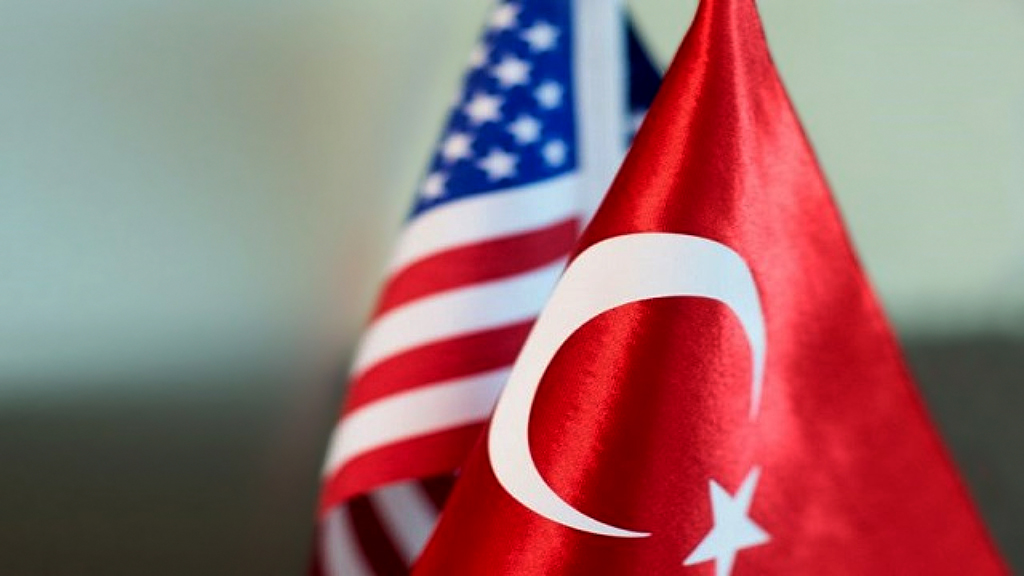
Threats over S-400s could damage Turkey-US alliance
Its geographic location as a bridge between East and West and its geopolitical significance made Turkey, particularly Istanbul, attractive for Bond movies. During the Cold War, as one of the most critical cities that absorbed the stress and tension of the rivalry between the Soviet Union and the U.S., the backdrop of Istanbul made the jobs of the producers of the popular culture films easier. This status of Istanbul continued following the end of the Cold War.
Share
It is no coincidence that Turkey has been a frequent venue for James Bond movies. Three Bond movies have been set in Turkey: "From Russia with Love," directed by Terence Young and starring Sean Connery as James Bond, "The World Is Not Enough," directed by Michael Apted and starring Pierce Brosnan as James Bond and finally "Skyfall," directed by Sam Mendes and starring Daniel Craig as James Bond.
Its geographic location as a bridge between East and West and its geopolitical significance made Turkey, particularly Istanbul, attractive for Bond movies. During the Cold War, as one of the most critical cities that absorbed the stress and tension of the rivalry between the Soviet Union and the U.S., the backdrop of Istanbul made the jobs of the producers of the popular culture films easier. This status of Istanbul continued following the end of the Cold War.
For the producers of fiction, Istanbul continued to be an essential location for the production of movies on energy, the nuclear race and espionage. Its symbolic significance has provided opportunities for writers and directors. In one of the memorable moments of "From Russia with Love," when two agents were talking about their impending attack, one of them said, "The Cold War in Istanbul will not remain cold very much longer." In reality, a fallout in Istanbul would bring repercussions to different parts of the world, as well.
In recent days the handling of the S-400 issue in some media outlets has become reminiscent of Cold War movies. Turkey's decision to purchase the S-400 air defense systems from Russia is generating a debate that reminds many of the Cold War rivalry between Russia and the U.S.
However, this debate ignores the most essential parts of the story. The debate about the issue is taking place as Turkey is about to purchase these air defense systems, but it neglects several facts about the story.
First of all, Turkey has made previous attempts to buy the air defense systems from the U.S. In these attempts, neither the price nor the terms of delivery offered by U.S. companies presented a good option for Turkey.
In terms of technology transfer, the same companies did not want to take any steps to make the deal favorable from the Turkish side. Second, the negative attitude of U.S. Congress regarding arms sales to Turkey has become a well-known fact in Turkey. In very critical periods for Turkey's national security, Ankara found that either Congress blocked arms sales or the U.S. administration ended up abruptly withdrawing the air defense systems that it had lent to Turkey.
The story of Ankara's decision to purchase the S-400s started under these conditions. In fact, before threatening Turkey with sanctions, both Congress and the U.S. administration ne
ed to think about how their previous actions generated the present situation.
Second, the story ignores the past and does not reflect the reality of the present. Since the beginning of the tension in regards to the S-400 issue, other than the threat of sanctions and accusations, there have been no positive steps to resolve the problem. First, the attempt to resolve the S-400 issue through a Patriot offer came too late. According to Turkish sources, the presented conditions are not still ideal for Turkey at this point. Second, Turkey's offer to work together to resolve the technical concerns about the coexistence of the two weapons systems was not positively received by the U.S.
More significantly, Washington has not taken into account that a potential technical concern of the U.S. is also a concern for Turkey, considering that Turkey is also a partner in this program and is paying billions of dollars to acquire new generation fighter jets. So the U.S. seems to want neither cooperation in a technical group nor the sharing of technology for the Patriots.
Finally, the story will have a future as well. The current statements and draft resolutions are increasing Turkish citizens' distrust in the U.S. Turkish citizens have already witnessed U.S. policies in the region over the last two decades: the invasion of Iraq, the attitude of the U.S. toward the coup in Egypt, the inaction in Syria all contributed to the loss of trust.
For the last few years, the U.S.' support of the People's Protection Units (YPG) and its disregard for Turkey's national security concerns have brought this reaction to a new height. Many in Turkey have started to question whether the U.S. is a reliable ally at this point. Sanctions on Turkey at this critical juncture will further aggravate the situation. Thus, for the future of relations, those who speak on behalf of Washington need to consider the domestic public repercussions of their statements.
In the end, this is not a scene from a James Bond movie. The story is more complicated. The current issue has a past that needs to be contemplated, a present where the U.S. has shown little consideration for Turkey's national security concerns and a future that has to be taken into account before making statements about the decades-long alliance. Turkey and the U.S. have been allies and strategic partners for decades. It is their shared interests and mutual concerns that keep the alliance together. Unilateralism has demonstrated its limits in U.S foreign policy.
[Daily Sabah, 23 April 2019]
Tags »
Related Articles





